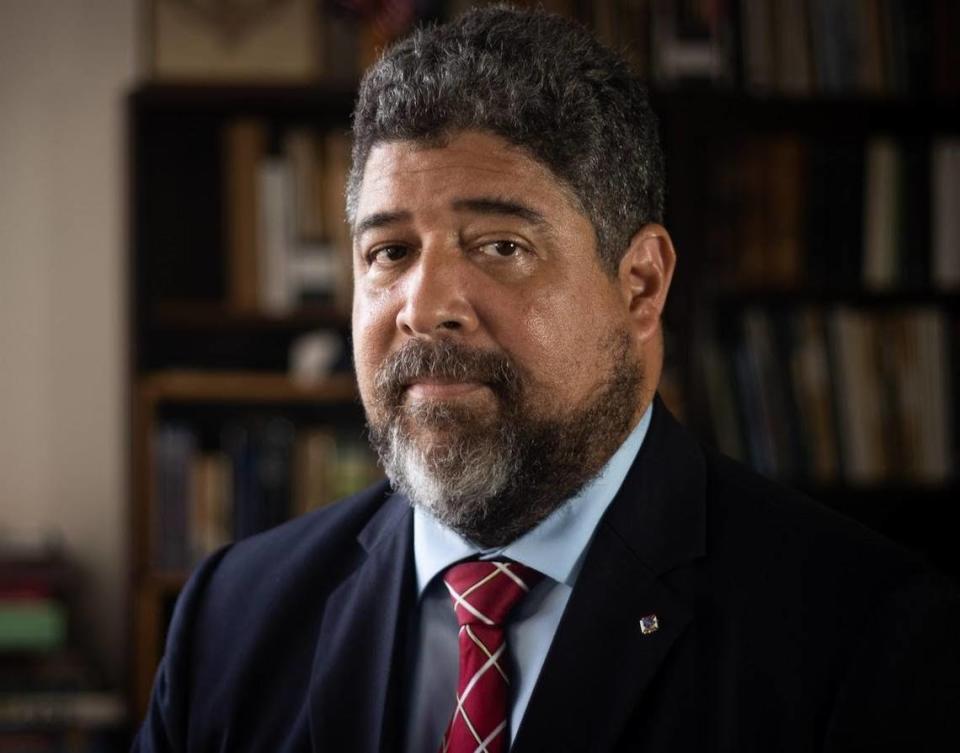In Cuba, E.U. official prioritized economic engagement over human rights. Shameful | Opinion
- Oops!Something went wrong.Please try again later.
Even before Josep Borrell, High Representative of the European Union for Foreign Affairs and Security Policy, arrived in Havana it was clear that addressing the plight of more than 1,000 political prisoners in Cuba was not a top concern.
Before his official visit to Cuba, from May 25-27, Amnesty International, Human Rights Watch, Civil Rights Defenders and five other human-rights organizations sent Borrell a letter, made public on May 22, urging him, together with E.U. member states to respond to the country’s human-rights crisis during the third EU-Cuba Joint Council in Havana.
They asked him “to lead the E.U. and its member states in robustly engaging the Cuban authorities to immediately and unconditionally release all those detained solely for exercising their human rights, including the rights to freedom of expression and peaceful assembly.” They asked, specifically, that they “raise the cases of José Daniel Ferrer García, Luis Manuel Otero Alcántara, Maykel ‘Osorbo’ Castillo Pérez, Aymara Nieto, Sissi Abascal Zamora, Donaida Pérez Paseiro and dissident artists Richard Zamora Brito “El Radikal”, Maria Cristina Garrido Rodriguez and Randy Arteaga-Rivera.”
On May 23, the European Parliament Subcommittee on Human Rights held a hearing on Cuba, where some members raised concerns, including the chair, who asked Jonathan Hatwell, head of the EEAS Division for Latin America and the Caribbean, if his boss, Borrell would be taking a list of political prisoners to hand over to the Cuban government and press for their release.
Hatwell’s meandering response, in which he said he didn’t know, spoke volumes.
On May 25, the European External Action Service tweeted: “Did you know that the European Union and its member states are Cuba’s first investor and first trading partner?” That same day, Borrell did not address Cuba’s political prisoners or mention the Cuban regime approving on the first day of his visit the “Social Communication Law,” which further criminalizes and seeks to muzzle independent journalism and penalizes user interaction on the internet to silence Cubans.
Instead, Borrell highlighted the micro, small and medium-sized enterprises (MSMEs) on Twitter. His first public event in Cuba was not a meeting with activists or the relatives of political prisoners, but a meeting with so-called “entrepreneurs” in a location owned by the son of a high-ranking military official.
Apparently, the European Union is competing with Russia in creating a new oligarchic class that is politically connected and will oversee Cuba’s private sector. Without the rule of law or private property rights, as is the case in Russia today, the private sector is determined by those connected to the inner circle of the dictatorship and the military.
The European Union’s high representative criticized U.S. sanctions, but made no mention of the internal blockade created by Cuban communists that results in great misery or that dissidents are calling for multilateral sanctions and international isolation of the Cuban dictatorship.
Borrell also criticized Cuba’s inclusion on the U.S. State Department’s state terror sponsor list, despite the fact that Havana is linked to terrorism around the world, and this includes Spain, Borrell’s home country.
The first ETA cadres were trained in Cuba. In 1964, members of the Basque terrorist group received training in kidnappings, subversion and sabotage. This terrorist gang, responsible for the murder of more than 850 Spaniards, has been given sanctuary in Cuba.
A January 2021 U.S. State Department report found that Cuba refused Colombia’s requests to extradite 10 ELN leaders living in Havana after the group claimed responsibility for the January 2019 bombing of a Bogota police academy that killed 22 people and injured more than 87 others. The report also found that Havana’s intelligence and military apparatus infiltrated Venezuela’s security and military forces to maintain a stranglehold over Venezuelans.
Havana’s support for FARC dissidents and the ELN continues beyond Cuba’s borders, as well, and the Castro regime created a permissive environment for international terrorists in Venezuela.
Money is fungible, and the European Union and its member states have forgiven Havana billions in debts. How many of these billions have gone to fund terrorism?
John Suarez is executive director of the Center for a Free Cuba.


